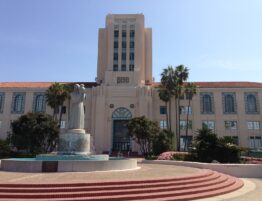
SB 188: Discrimination Prohibited Based on One's Natural Hair
On January 1, 2020, California became the first state in the United States to prohibit discrimination on the basis of someone’s natural hairstyle. Designated as Senate Bill 188, it has also been referred to as the CROWN Act, which stands for Create a Respectful and Open Workplace for Natural Hair. The purpose of the bill is to protect employees in the workplace and students in learning institutions from the effects of discrimination as it applies to hairstyles or hair in general, due to association with one’s race.
Applications of the bill
The bill is intended to apply to public and private employers, as well as all public educational institutions. It goes one step further than both the state’s Education Code and its Fair Employment and Housing Act, both of which previously attempted to provide some level of protection against discrimination based on racial characteristics. SB 188 extends the definition of ‘race’ to include all those characteristics and personal traits which are traditionally associated with race, for example hairstyles.
Noting that discrimination on the basis of personal hairstyles has continued to be a source of discomfort for many African Americans, the bill specifically bans any form of discrimination against individuals wearing styles such as braids, twists, locks, or Afros, since it would tend to focus in a disparate manner on Black individuals as opposed to any other group. The bill was originally introduced by State Senator Holly J. Mitchell, in an attempt to overthrow the obvious discriminatory behaviors evident in many public learning facilities, as well as many workplaces throughout the state.
Dress and grooming codes
One of the areas which will be most closely impacted will be dress codes issued by companies, and by learning institutions. Wherever such policies are in place and enforced, they must not contain any provisions which have a disparate impact on any specific race or grouping. There cannot be any wording in these policies which makes reference to prohibition of hairstyles that are associated with race, for instance braids or cornrows. This means corporations will be obliged to take care when drafting such policies, so as to avoid any language which is suggestive of discrimination on the basis of racial characteristics.
There will be a distinction in cases where employees are required to secure their hair for reasons of safety, hygiene, or public health. As an example, employees working in a food preparation or food service environment should have long hair secured, so there is no chance it will fall into foods being prepared. In these situations, employers are within their rights to draft a dress or grooming policy which specifically references the need for hygiene, and which requires employees to respond accordingly.
Although the bill primarily focuses on preventing discrimination based on racial characteristics such as hair and hairstyles, there is language in the bill which extends beyond the simple treatment of hair. The clause which refers to “traits historically associated with race”, can bring in a great many other characteristics as well, so all of these must be avoided in any dress code or grooming code issued by employers and schools.






